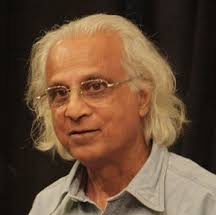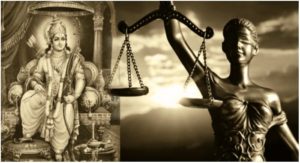Dunu Roy
There is no doubt that the Delhi elections have been comprehensively lost by the Bharatiya Janata Party (BJP), but the sub-text is that it improved its vote share from 32.2 per cent in 2015 to 38.5 per cent this time. The Aam Admi Party (AAP) kept its share of 54.3 per cent in 2015 almost intact with 53.6 per cent in 2020. In other words, the BJP has gained more adherents for its rabid Hindtuva agenda, expressed most viciously against those protesting the new emerging norms for citizenship that make a mockery of the Constitution.
At such a time, therefore, it is illuminating to go back to the concept of citizenship as expressed during the Constituent Assembly debates—especially on 10th, 11th, and 12th August 1949, when the relevant Articles 5 and 6 came up for discussion—and explore whether the concept is frozen or can be developed further. Apart from some renumbering—so that now the Articles are from 5 to 11—and correction or modification of a few words, the original draft was passed by the Assembly as it was, except for an additional Article 10 dealing with “Persons voluntarily acquiring citizenship of a foreign State not to be citizens”.
The main themes of the debate are startlingly familiar in today’s context, even though they were being framed in the shadow of the Partition of the country. Thus, while Dr. B.R. Ambedkar, the Chairman of the Drafting Committee, had framed five categories—persons born and residing in India; not born but residing in India; resident in India but migrated to Pakistan; resident in Pakistan and migrated to India; and persons (or their parents) born in India but residing outside India—the Members had three major concerns.
The first concern was who was to be issued permits to return to India as citizens—apart from Hindus and Sikhs who “have no other home but India”. As explained by Ambedkar, only those persons from Pakistan would be allowed who had a permit for Resettlement or Permanent Return. But several Members contested this, with Dr. P.S. Deshmukh (C.P. & Berar) bluntly stating, “For aught I know he might be a fifth columnist”; Prof. K.T. Shah (Bihar) demanding, “to see to it that there would be no Quislings amidst us”; and Thakur Das Bhargava (East Punjab) wary of those who are “occupying lands and usurping the rightful owners by terrorising them and becoming a majority in this country”.
In a similar vein, B.P. Jhunjhunwala (Bihar) echoed that, “people from Eastern Pakistan are infiltrating into Assam for some sinister motive i.e. to increase their population”; Maulana Md. Hifzur Rehaman (U.P.) cautioned the House against “conspirators and cheats or those who have come to consolidate their business”; and Rohini Kumar Chaudhury (Assam) was vehement in excluding “those persons who surreptitiously introduced themselves into my province … to exploit more from that province of Assam”.
This early version of the ‘ghuspaithiya’ (infiltrator) was firmly rebutted by Prime Minister Jawaharlal Nehru, who asked “what that word means”, when he was accused of “appeasement of Pakistan, appeasement of Muslims, appeasement of this and that”. Nehru drew significant support from Mahboob Ali Baig Sahib’s (Madras) sharp question to the Members, “What would you do if one of your men becomes a traitor, a Communist and tries to overthrow the Government?” Brajeshwar Prasad (Bihar) also agreed with Nehru “that the security of India today is menaced not by Muslims but by Hindus.” In the final vote, the Assembly overwhelmingly agreed with them.
Just as much as the issue of the Muslim ‘traitor’ was agitating the minds of some Members, there was a second issue of concern that kept cropping up. This centred round the issue of how politics and economics were intertwined. Jaspat Roy Kapoor (U.P.) cited the case of government employees, who had opted for Pakistan but “after going over to Pakistan came back to India finding that they had no scope for a decent existence in Pakistan”. Baig also spoke of “persons who are employed in the provinces of Pakistan coming back to India”. And Sardar Bhopinder Singh Man (East Punjab) argued that the permit is not simply “to enable a person to visit India for trade or commerce but that it will entail along with it citizenship rights also”.
Shah warned against foreign capitalists who might come “merely to enjoy those benefits of our fiscal or industrial policy, without their heart being in this country”. At the same time, Bhargava was concerned about those who went to the colonies as “indentured labour” and wanted to come back as “industrialists, businessmen and ardent labourers who will certainly be an asset to this country”. Alladi Krishnaswami Ayyar (Madras) also argued that people from Goa, French Settlements and other places “have come to India and have settled down in this country, regarding India as a permanent home, and … have assisted commerce”.
Even Chaudhury confessed that he wanted citizenship rights for people who “had come to Assam … as government servants or as employees of businessmen”, adding however that, “Every province would like to be prosperous but it should not be at the cost of other persons”. N. Gopalaswami Ayyangar (Madras) agreed that “a very large number of Muslims who will come over to India from Pakistan and who will apply for registration and get registered, much to the detriment of the economy of Assam … (and) the economy of West Bengal”. Thus, it was interesting that Members could not reconcile the supposed difference between protecting those who, according to them, came in and contributed to the wealth of the nation and those who were a drain on it.
Finally, there was the concern about those whose citizenship status was not made clear in the draft Constitution: including women after marriage; infants; persons not born as Indians, or born of parents or grand-parents who were Indian; those who, after going over to Pakistan, came back to India and did not want to go back to Pakistan; or those in search of double nationality. Partly because time was limited and partly because no consensus could be reached, the Constituent Assembly left these cases “to be decided by laws which will be made by Parliament hereafter”. In fact, this decision was enumerated in Articles 10 and 11 of the finally approved Constitution.
Accordingly, the Citizenship Act was passed by Parliament in 1955 to provide for citizenship by birth, descent, registration, naturalisation, and incorporation of territory. In all these, the condition of ‘domicile’, or being resident on the territory of India, has been the primary consideration. But the question of who is an ‘Indian’ could not be settled even in 1949. There is a curious exchange between Dr. Deshmukh and Prof. Shibban Lal Saksena (U.P.) where the latter asks for a definition and the former responds with, “I thought that an Indian is a very easily recognisable person. When combined with domicile, it is easier to define it.”
Within this context, whether the amendments to the Act in 1986, 1992, 2003, 2005, 2015, and now in 2019 have clarified the matter is open to interpretation. But one thread that remains untangled is the intertwining between politics and economics. Is the person who is born and resident in India but who runs away with all the wealth that wascreated (23,000 dollar-millionaires had left India in the four years between 2014 and 2018; just 36 of them are said to have defrauded the public exchequer of Rs 40,000 crore) worthy of being an Indian citizen?
Or conversely, should the persons born in India but resident outside India (estimated at 1.8 crore in 2019, half in ‘Muslim’ countries, who sent back $80 billion—Rs 5,70,000 crore) but contributing to much more wealth abroad be considered as Indian citizens? And finally, all those persons who are ‘illegal immigrants’ (only around 55 lakh, or 0.44 per cent of the population, had reported their last residence outside the country in 2011) or internal migrants (100 million who contribute 2 per cent to national GDP), are they eligible to be citizens or not?
The idea of a Republic embodies a social contract wherein citizens collaborate to elect a government and pay taxes so that governance may be possible. Taxes, in turn, can be paid only when citizens—irrespective of whether they are rich or poor or of any religion—are able to protect livelihoods and earn, as guaranteed by the Constitution. Those who contribute to the common wealth, even by providing the most menial of services, should surely be entitled to both rights and responsibilities of citizenship. If the Citizenship Act is to be amended, the debate on ‘work’ cannot be evaded any more.
(Dunu Roy is Director, Hazards Centre, Delhi.)




